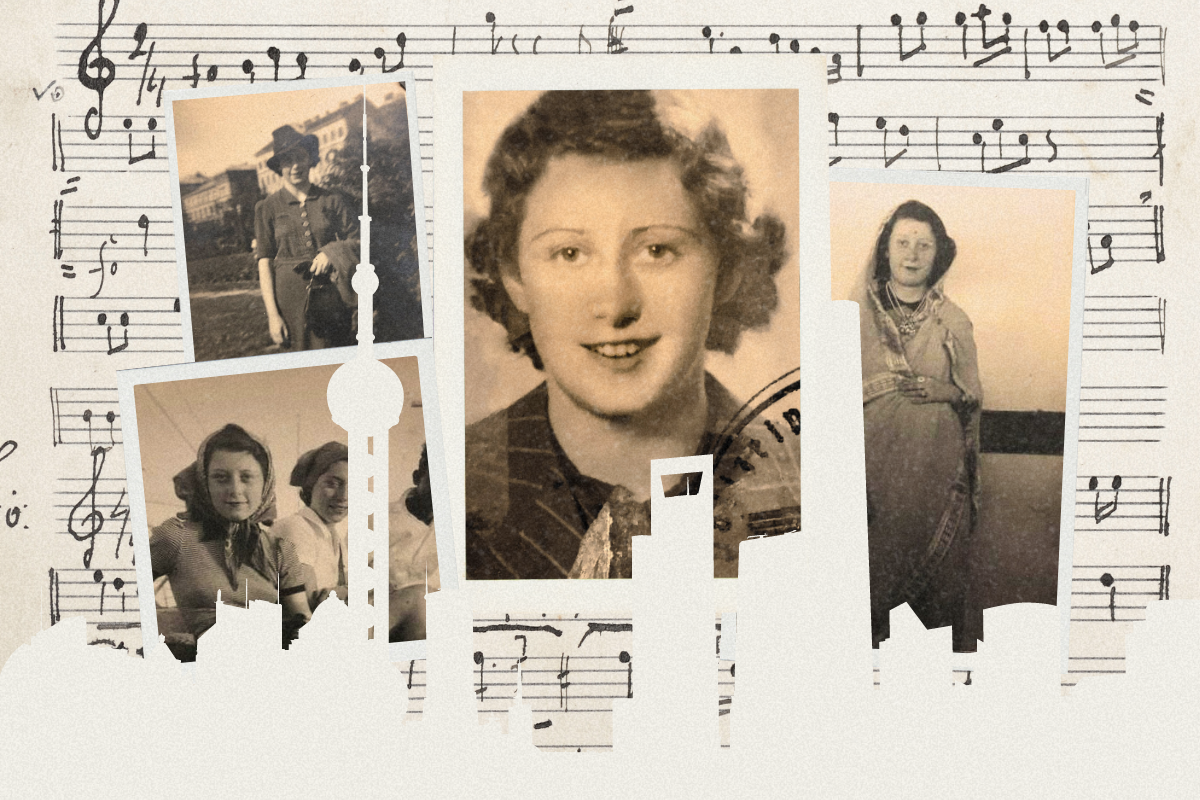It always stung when my Grandma Rose asked me, “What’s your backup plan?”
I was a teenager, growing up in Las Vegas and performing operatic arias that I would go on to sing into my late 20s. My blood curdled at my grandmother’s suggestion that my career might not pan out, and I would respond, defiantly, “There IS no backup plan!”
Well, I stuck with music. And years later, I wrote and produced a musical based on my grandmother’s harrowing journey to America that she never told me about.
It all started in early 2015, when my dad Googled his mom’s name. She had died more than a decade earlier, and his search produced something he never could have imagined.
An article said she had been detained at an immigration station off the coast of San Francisco. The story was published by the Angel Island Immigration Station Foundation and sought more information from any family of my grandmother, who was born Rosa Ginsburg in Vienna.
My dad showed the story to me and my mom. We were stunned.
We knew my grandmother had escaped Nazi-occupied Austria during World War II. But I certainly didn’t know, as the article revealed, that she had fled to Shanghai before immigrating to the U.S. as a teenager and had been detained for weeks before entry.
My parents flew to San Francisco, where I had been living for years, to meet with the Angel Island staff. They had asked us to bring her passport or any other documents we had. They already had a copy of her interrogation transcript, which they shared with us.
My family and I were speechless. After looking for answers about my grandmother’s past, we now had so many more questions.
The only thing my grandma told me about her escape from Vienna was that her neighbors betrayed her. I wanted to know more, but she told me that it was all too sad.
I was now determined to fill in the missing pieces and tell her story.
I moved back to Las Vegas in the summer of 2015 after getting married — my fiancé and I met in the Bay Area, but he had already moved to Southern Nevada for a new job. Once I left foggy San Francisco, I made sure to find some cozy coffee shops in the desert where I could come up with a plan.
Once I began to look into her story, I met Man Li Ho, who closely examined my grandmother’s documents. Man Li is the daughter of the courageous Chinese diplomat Feng Shan Ho, who saved thousands of Jews from the Nazis in Vienna. He helped bring them to Shanghai and was known as the “Chinese Schindler.”
Man Li had performed this kind of research for numerous other Jewish families, but even she wasn’t able to pin down exactly how my grandmother got out of Austria.
We never found evidence showing Feng Shan Ho helped my grandma’s family escape to Shanghai. But the transcript of her interrogation on Angel Island revealed she arrived in California broke.
A big thing that struck me in the transcript was how alone she seemed in detainment. Having an immigration officer — in a country she’d never been to and now wanted to live in — ask dozens of questions that seemed designed to trip her up must have been terrifying.
Usually, when people think of Jewish immigrants coming to the U.S., thoughts turn to Ellis Island in New York. Angel Island was the Ellis Island of the West Coast, but it was mostly a port of entry for Asian immigrants. Jews came through there, but it wasn’t too common.
But my grandma was far from the only one to be detained there. I’ve learned about Asian immigrants who were held on Angel Island for a year or more. I can only imagine what it was like for them, sleeping in the barracks every day, not knowing if or when they could start a new life in the U.S. or if they’d get sent back to the country they had left, if not fled.
Having learned all this, my plan was clear: I decided to write a one-woman show. I wanted to imagine myself as my grandmother, experiencing the chaos and fear of her escape from Europe to China with her family, and then her solo voyage to California with only $2.50 in her pocket.
With the help of two of my longtime collaborators, Bruce Bierman and Josh Horowitz, we premiered the show in 2017 at the Contemporary Jewish Museum in San Francisco. We have performed at other locations in the Bay Area since, including the Chinese consulate in San Francisco, and we were filmed by PBS as part of a documentary on Jews’ escape to Shanghai during the war.
When the Angel Island staff suggested we perform the show on the island itself, I got chills just thinking about it. Performing where my grandmother was actually detained is a full-circle moment and prompted me to reimagine parts of the show, including adding scenes where I play myself as the narrator explaining my discoveries. “Shanghai Angel: Finding Rosa” is now scheduled to premiere on Angel Island on July 14.
My grandmother was the strong but silent type. She never told me she loved me, though I could feel it through her actions. She had a thick accent. I always remember her green eye shadow, her red lipstick on thin lips and her smoker’s cough. She cooked goulash and baked sweets every time I saw her.
When I started writing this show, I desperately wanted to learn more about my grandmother. Today, I still have many questions about her life that I doubt I can ever answer.



